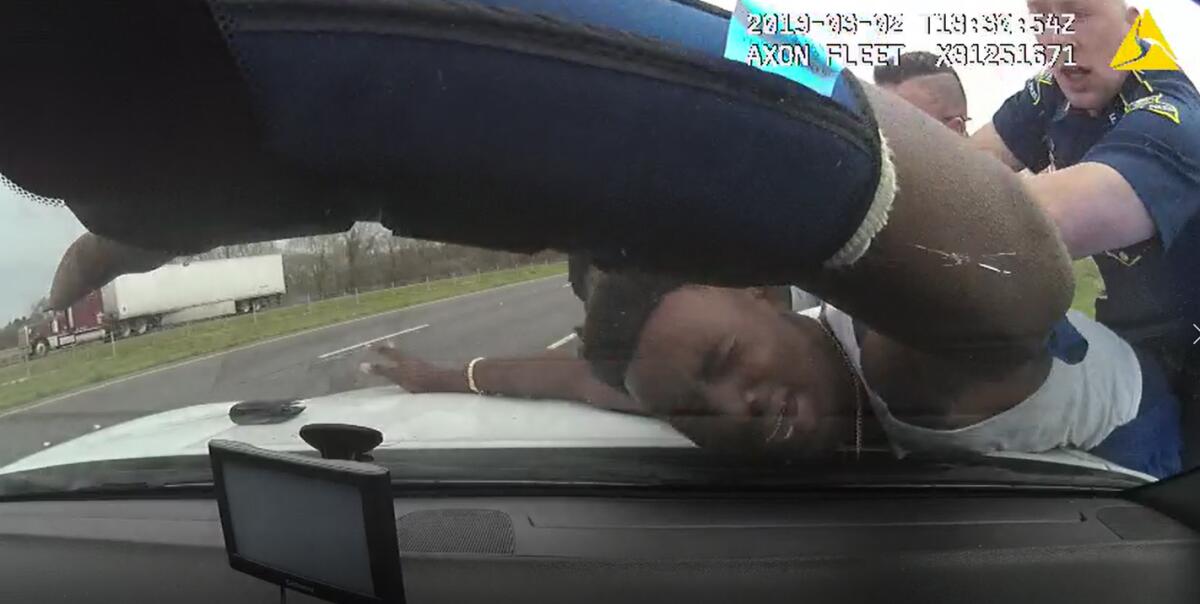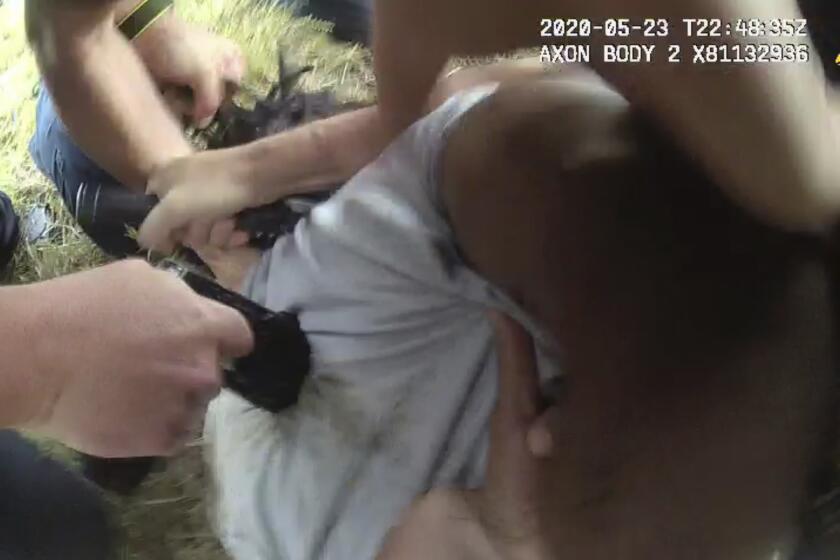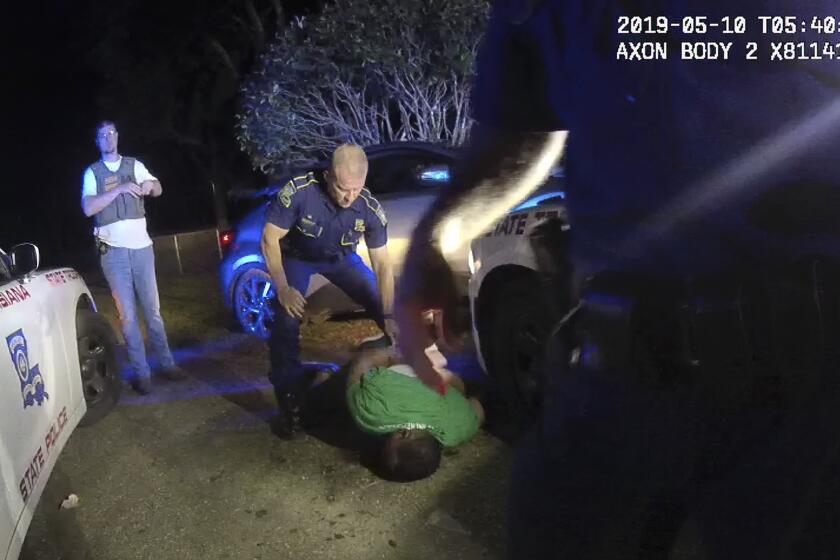Feds to investigate Louisiana State Police in beatings, mostly of Black men

- Share via
BATON ROUGE, La. — The U.S. Justice Department is opening a sweeping civil rights investigation into the Louisiana State Police amid mounting evidence that the agency has a pattern of looking the other way in the face of beatings of mostly Black men, including the deadly 2019 arrest of Ronald Greene.
The federal “pattern or practice” probe announced Thursday followed an Associated Press investigation that found Greene’s arrest was among at least a dozen cases over the past decade in which state police troopers or their bosses ignored or concealed evidence of beatings, deflected blame and impeded efforts to root out misconduct. Dozens of current and former troopers said the beatings were countenanced by a culture of impunity, nepotism and, in some cases, outright racism.
“We find significant justification to open this investigation now ... We received information of the repeated use of excessive force, often against people suspected of minor traffic offenses, who are already handcuffed or are not resisting,” said Asst. Atty. General Kristen Clarke, who oversees the Justice Department’s civil rights division. “There are reports that officers target Black residents in their traffic enforcement practices and in use of force.”
The federal probe, the first such action against a statewide law enforcement agency in more than two decades, comes more than three years after white troopers were captured on long-withheld body-camera video beating, stunning and dragging Greene on a rural roadside near Monroe. Despite lengthy, ongoing federal and state investigations into a death that troopers initially blamed on a car crash, no one has yet been charged.
AP’s reporting found troopers have made a habit of turning off or muting body cameras during pursuits. When footage is recorded, the agency has routinely refused to release it. And a recently retired supervisor who oversaw a particularly violent clique of troopers told internal investigators last year that it was his “common practice” to rubber-stamp officers’ use-of-force reports without ever reviewing body-camera video.
In some cases, troopers omitted uses of force such as blows to the head from official reports, and in others troopers sought to justify their actions by claiming suspects were violent, resisting or escaping, all of which were contradicted by video footage.
Three Louisiana State Police troopers have been charged with simple battery, accused of beating a Black motorist after a chase.
Clarke said the probe is aimed at driving reforms that the Justice Department could seek to force by suing to implement a federal consent decree. She added that Gov. John Bel Edwards and the head of the Louisiana State Police, Lamar Davis, have pledged their cooperation.
Black leaders have for months been urging the Justice Department to launch a broader investigation into potential racial profiling by the overwhelmingly white state police, similar to other probes opened over the past year in Minneapolis, Louisville and Phoenix.
By its own tally, 67% of state police uses of force in recent years were against Black people, who make up 33% of the state’s population.
New body-camera video and an autopsy report add to the growing wealth of details about Ronald Greene’s 2019 death in Louisiana.
The action comes as Edwards prepares to testify before a bipartisan panel of state lawmakers investigating Greene’s death. The Democratic governor and his lawyers privately watched the video showing Greene taking his final breaths during his fatal arrest — footage that didn’t reach prosecutors until nearly two years after Greene’s May 10, 2019, death.
Federal prosecutors also are still investigating whether police brass obstructed justice to protect troopers in the Greene case — and whether they sought to conceal evidence of troopers beating other Black motorists.
More to Read
Sign up for Essential California
The most important California stories and recommendations in your inbox every morning.
You may occasionally receive promotional content from the Los Angeles Times.











